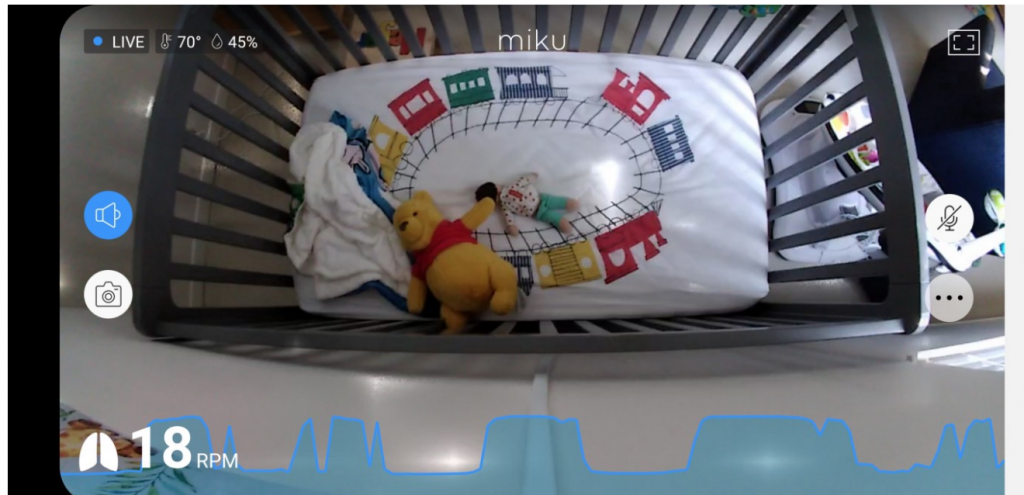
Pooh’s heartbeat seems a bit odd, giving the AI baby monitor something to report.
Studies Show AI Excels at Reducing Medical Errors, Improving
The U.S. has approximately 250,00 deaths each year due to medical errors. Including misprescribed drugs.
And in most of our minds, we like to think we can trust our medical systems. However, they are not perfect by a long shot. Even with the best prenatal care, we have terrible stats on childbirth in many categories.
In 2019, there were about 1,250 deaths due to SIDS, about 1,180 deaths due to unknown causes, and about 960 deaths due to accidental suffocation and strangulation in bed. That is a lot of misery for our country to deal with.
Today we bring you two stories about how AI will help lower that death rate in a significant way.
Mobilehealthnews.com reports that:
A study has demonstrated the international transferability of a Taiwanese artificial intelligence model for detecting medication errors in EHR systems in the United States.
The study was jointly conducted by Taiwan-based medical AI startup Aesop Technology, Taipei Medical University, Harvard Medical School and Brigham and Women’s Hospital. Its results were announced last week in a press release.
The study, whose findings were published in the Journal of Medical Internet Research – Medical Informatics in January, found “good” transferability of Aesop’s machine learning model.
The study shows a federated learning approach seems stronger than the process using individual data sets. And it is time-saving.
“Reducing medication errors at the source is crucial. However, to help physicians be better informed and make better decisions, they need more accurate suggestions and alerts. This is where machine learning can help to make better decisions and improve patient safety and quality of care,” said Dr David W. Bates, Chief of General Internal Medicine and Primary Care at Brigham and Women’s Hospital and Professor of Medicine at Harvard Medical School.
Incorporated in Aesop’s MedGuard system, the AI medication safety model was trained using the 1.3 billion prescription data set from the National Health Insurance Administration in Taiwan.
In the statement, Aesop said its system can “immediately” provide adaptive suggestions to help doctors better complete their prescriptions. The AI model has since been expanded to eastern and western hospitals in the US.
Keeping an Eye on Baby
Baby monitors have been around for quite a while. In a fun piece by Thomas Smith appearing in debugger.medium.com, we get the lowdown on the latest AI-driven baby monitor. And when it says it monitors, you can believe that. Everything from full views with video, audio, heart rate, breathing rate, and much more. Maybe even too much?
Smith writes:
“Babies breathe weird. Whereas you and I generally take around 15 relatively consistent breaths per minute, babies often follow a pattern called periodic breathing, where they take several quick breaths in a row and then stop breathing entirely for up to 10 seconds. According to Fairview Health, periodic breathing is usually totally normal. But it tends to freak parents out.”
If you have a newborn, you’ve probably rushed to their nursery at least once, panicking, to check if they’re still breathing. Maybe you’ve done this once per night. According to Today’s Parent, checking your baby for signs of life is extremely common among new parents and is generally a “totally normal” urge. It tends to subside as your baby gets older, but especially in the beginning, many new parents check on their sleeping infants all the time. Talk about helicopter parents.
Here is a quick paragraph that describes Smith’s new gadget from Miku, the Miku Pro ($399). It aims to make it easier for them to check on their babies. “The Miku Pro is a semipermanent baby monitor that you install above your infant’s crib. The device uses a camera, multiple sensors, and Miku’s proprietary A.I.-powered SensorFusion technology to track and graph your baby’s breathing in real-time.”
But the most intriguing part of this system is the following.
“The Miku Pro does this without physically touching your baby and without using any wearables. It also doubles as a capable baby monitor, records your baby’s sleep patterns, and tracks conditions in your nursery.”
If you find you are in need of this $400 baby monitor, Smith’s article goes into lots of detail. The good, the bad, and the ugly of it all. And of course, it comes packed with AI and there are even less expensive versions by other manufacturers. Oh, and the system even counted the number of breaths that the stuffed Pooh bear took.
read more at mobihealthnews.com
read more at debugger.medium.com







Leave A Comment